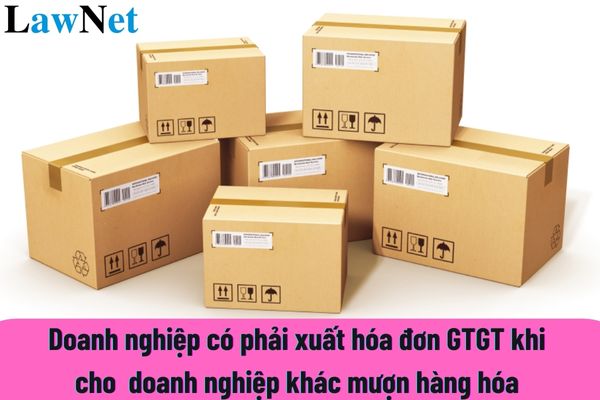Is a enterprise required to issue VAT invoices when lending goods to another enterprise in Vietnam?
Is a enterprise required to issue VAT invoices when lending goods to another enterprise in Vietnam?
Pursuant to Clause 4, Article 7 of Circular 219/2013/TT-BTC (amended by Clause 2, Article 3 of Circular 119/2014/TT-BTC) it is stipulated as follows:
Taxable Price
...
4. Taxable price for self-consumed products, goods, and services.
Internally circulated goods such as those issued for internal transfer, raw materials, semi-finished products used for continuing the production process within a production or enterprise facility, or goods and services provided by the enterprise facility for enterprise activities, are not subject to VAT calculation, payment.
In the case where a enterprise facility independently produces or constructs fixed assets (self-made fixed assets) for serving production and enterprise activities of VAT taxable goods and services, upon completion, acceptance, and handover, the enterprise facility is not required to issue invoices. Input VAT forming the self-made fixed assets is declared and deducted according to regulations.
For cases where machinery, equipment, materials, or goods are issued in the form of loans, borrowings, or returns, if there is a contract and documents related to the transaction that are appropriate, the enterprise facility is not required to issue invoices, calculate, or pay VAT.
...
Additionally, Official Dispatch 1394/CT-TTHT in 2020 provides the following guidance:
Pursuant to the above regulations, the Hanoi Tax Department has the following opinion:
In cases where a company signs a contract to lend goods to sell to customers in compliance with legal regulations, the lending enterprise is not required to issue an invoice and declare or pay VAT at the time of lending.
Thus, if a enterprise lends goods to another enterprise and there is a lending contract and transaction-related documents that are appropriate, at the time of lending, the enterprise is not required to issue invoices and declare or pay VAT. However, if the enterprise does not have a contract and related documents, it is still required to issue VAT invoices and declare and pay VAT as usual.

Is a enterprise required to issue VAT invoices when lending goods to another enterprise in Vietnam? (Image from the Internet)
What are the contents for issuing a 0% VAT rate invoice in Vietnam?
According to Article 10 of Decree 123/2020/ND-CP guided by Clause 2, Article 4 of Circular 78/2021/TT-BTC, when issuing a VAT invoice with a 0% tax rate, the following content must be included:
- Invoice name, invoice symbol, invoice form number.
- Invoices printed by the Tax Department
- Invoice number
- Name, address, and taxpayer identification number of the seller
- Name, address, and taxpayer identification number of the buyer
- Name, unit of measure, quantity, and unit price of goods or services; the amount excluding VAT, VAT rate, total VAT amount per rate, total VAT amount, and the total payment amount including VAT.
- Signature of the seller, signature of the buyer
- The time of invoice creation follows the guidance in Article 9 of Decree 123/2020/ND-CP and is displayed in the day, month, year format of the solar calendar.
- The time of digital signing on electronic invoices is the time when the seller and buyer use digital signatures to sign on electronic invoices, displayed in the day, month, year format of the solar calendar. Should an electronic invoice have a different digital signing time from the invoice creation time, the tax declaration time is the invoice creation time.
- Tax authority code for electronic invoices with tax authority code
- Fees, charges belonging to the state budget, commercial discounts, promotions (if any)
- Name, taxpayer identification number of the organization processing the printing of invoices for invoices printed by the tax authority.
- Language, numerical representations, and currency shown on invoices
Do VAT invoices include surcharges or additional fees in Vietnam?
According to Article 14 of the Value-Added Tax Law 2008 the following is stipulated:
Invoices and Documents
1. The sale of goods and services must have invoices and documents as prescribed by law and the following regulations:
a) enterprise establishments paying tax by the credit invoice method use VAT invoices; invoices must be fully and correctly filled, including any surcharges or additional fees (if any). In case of selling VAT-subjected goods and services, if the VAT invoice does not specify the VAT amount, the output VAT is determined by the payment amount on the invoice multiplied by the VAT rate, except as provided in Clause 2 of this Article;
b) enterprise establishments paying tax Pursuant to value-added calculation directly on value use sales invoices.
2. For stamps and tickets as payment documents with pre-printed payment values, the payment values of those stamps and tickets include VAT.
Thus, VAT invoices must be fully and correctly filled, including any surcharges or additional fees (if any).

